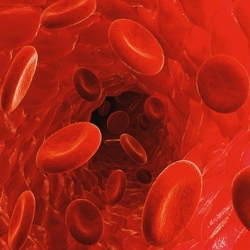
Pfizer is cooperating with the DNA robot laboratory managed by Prof. Ido Bachelet at Bar-Ilan University. Bachelet has developed a method of producing innovative DNA molecules with characteristics that can be used to "program" them to reach specific locations in the body and carry out pre-programmed operations there.
This cooperation was revealed in a lecture by Pfizer president of worldwide research and development (WRD), portfolio strategy and investment committee chairman, and executive VP Mikael Dolstein at the IATI Biomed Conference in Tel Aviv being concluded today. Research will focus on the possibility that the robots will deliver the medical proteins to designated tissue.
Bachelet came to Bar-Ilan from the Massachusetts Institute of Technology (MIT) several years ago. At a Tedmed event held two years ago, he explained, "In order to make a nanometric robot, we first of all create a selected DNA sequence, and then fold it using a process called DNA origami. With this method, a person can give a command to a computer, which folds the DNA molecule as needed.
"The result is that a DNA sequence can be made in the form of a clam, for example, and containing a drug. The DNA molecule, however, contains a code activated upon encountering certain materials in the body. For example, the clam can be designed to change its shape and release the drug only when it meets a cancer cell or the right tissue.
"In addition, the molecules can receive signals from each other, and can theoretically change their shape according to signals from the body, and can be pre-programmed to attach themselves to one another. In the future, it will be possible to combine each such molecule with a miniature antenna. When the antenna receives an external signal, it will make a small change in the molecule that will make it open or close, and dissipate or connect itself to another molecule."
